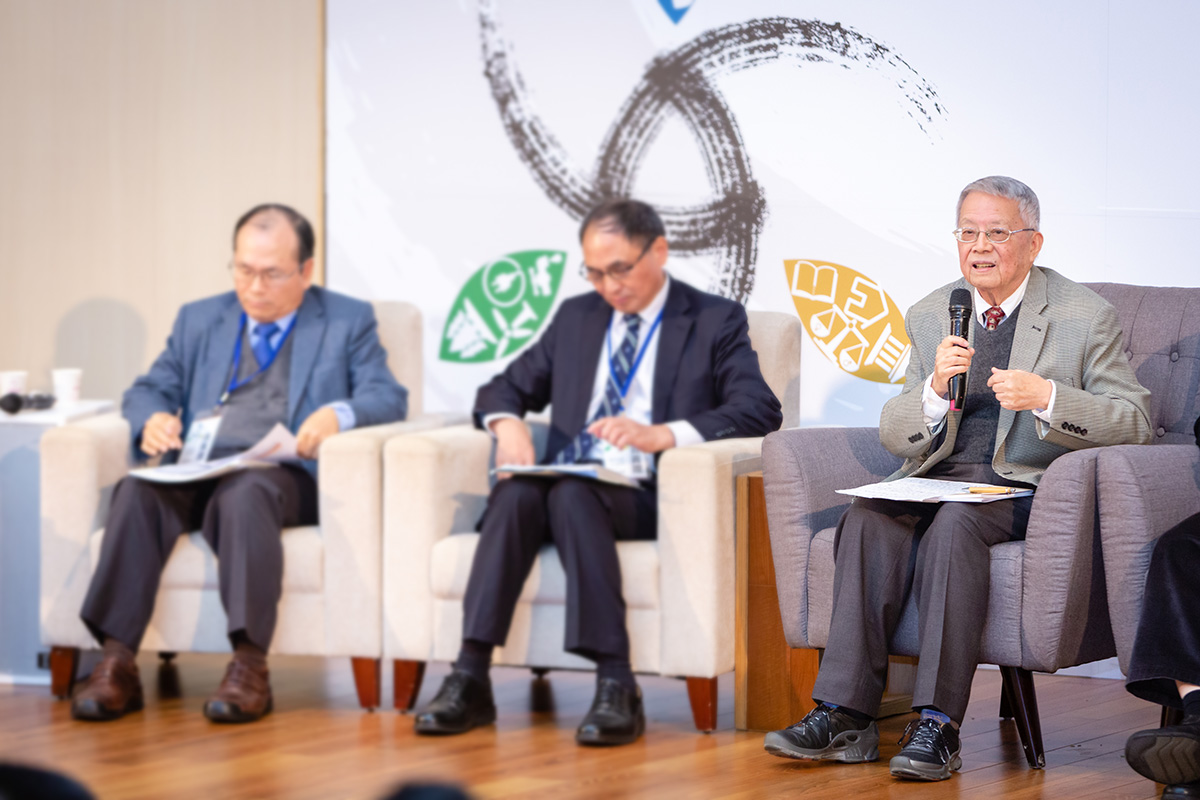
Panelist
Dr. Chao-han Liu,
Academician, Academia Sinica; Former President, National Central University
With respect to President King's insights, I'd like to propose my views.
In academic and scientific circles, we are now at a new epoch we call the Anthropocene. It means that human activity has become an overwhelming force in determining planet Earth's evolution and outlook.
Human activity is driven by civilization and culture, and conversely, civilization and cultures are products of human activity. So civilization is where we begin the discussion in this new epoch, the Anthropocene.
At different sites across the globe, our human activities formed various civilizations. In east Asia, over 5000 years ago, our ancestors formed the Chinese civilization, which has come to center around Confucian thought. Confucianism is the root of Chinese civilization, and most succeeding dynasties revolve closely to those roots. We can see that dynasties with extended periods of peace and stable governance adhere especially close to Confucian thought and its essential principles of Wang Dao. Wang Dao equates to sustained peace and stability. I think this is why the research team adopts the principles of Wang Dao as the basis or their arguments for sustainability. At least that is how I understand it.
Since the concept of sustainable development was proposed in Brundtland's Report, also known by its title “Our Common Future", various organizations and institutions have devised indices and indicators to quantify progress, though they all fall under the scope of Sustainable Development Index, or SDI. Their motivation is to spur nations and the world along sustainable paths. The WDSI team's efforts share this dream, and though there is room for improvement, overall, it is an admirable goal.
I like to point out 2 areas that strike a chord with me. First, among the 3 domains of Global Ethics, Inclusive Development, and Environmental Equilibrium, the first 2, Global Ethics and Inclusive Development, are highly related, while the 3rd, Environmental Equilibrium, shows little correlation to the first 2. This is an interesting result, because on the road towards sustainability, all 3 domains should reach a meaningful equilibrium. Currently the environmental domain seems unrelated to the others. You emphasize in your report that the planet has its limits, called the Planetary boundary, which we have approached and are about to cross. We witness environmental policies being decoupled from policies of economic development and global ethics, which raises worries.
Second, the international community has long discussed the difficulty of carrying out sustainable policies, and I have been asked to address this on many occasions. My answer is often education, but haven't been able to elaborate how to turn it into universal values. The WDSI team's effort in making culture and Wang Dao a fundamental part of the index is important, and has a good chance of making sustainability a truly universal value.